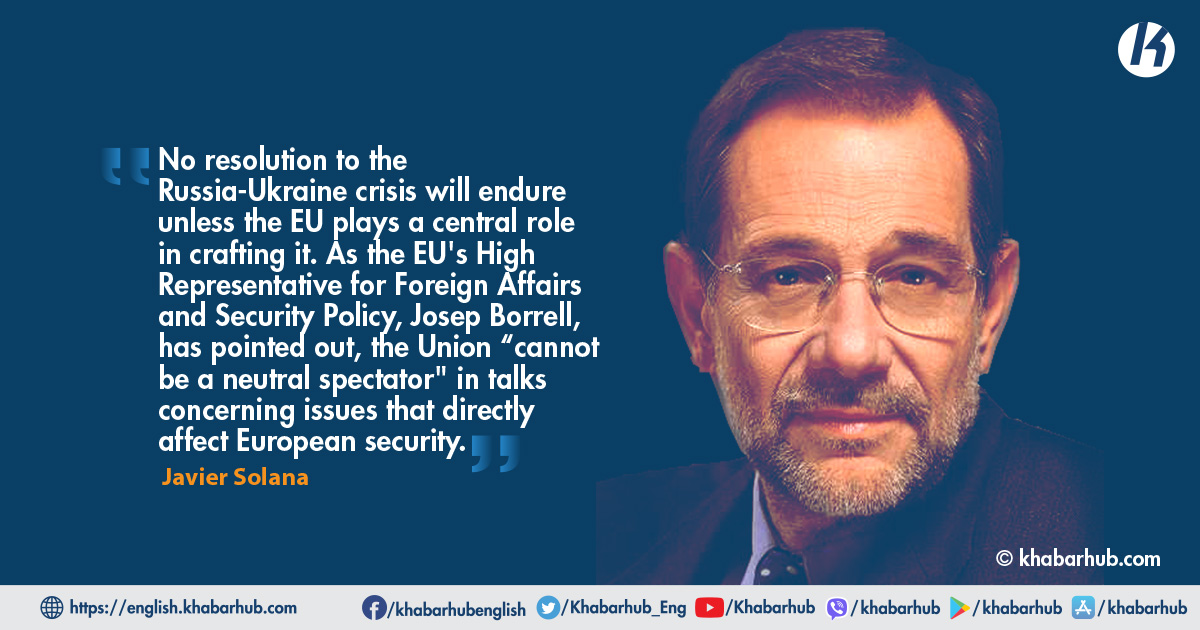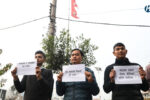Europe has a security framework like no other, embodied in an intricate web of treaties, rules, and institutions. Despite its sophistication, the European security order is not a finished product, but one that is constantly under revision.
Europe’s security arrangements have been built up gradually, over the course of several decades. The foundations were laid at the 1945 Yalta Conference, where US President Franklin D. Roosevelt, British Prime Minister Winston Churchill, and Soviet leader Joseph Stalin reorganized Europe by dividing the region into spheres of influence, placing Europe’s security posture on a more stable and predictable footing.
Three decades later, in 1975, the Helsinki Summit of the Conference on Security and Cooperation in Europe helped to ease Cold War tensions. In the 1990s, the Conference was institutionalized as the Organization for Security and Co-operation in Europe (OSCE).
Despite these vital agreements, the fall of the Soviet Union shook Europe to its core. The last Soviet leader, Mikhail Gorbachev, was aware of the changes that Russia would confront in the coming decades.
“We live in a new world,” he declared in the speech that officially dissolved the Soviet Union on December 25, 1991. Between 1989 and 1991, the Kremlin lost control over an expanse of territory larger than the European Union.
In the “new world” that Gorbachev referred to, one part of this lost territory has occupied a singular position in Russian leaders’ hearts and minds: Ukraine. Yevgeny Primakov – who was Russia’s foreign minister when I, as NATO Secretary General, negotiated the agreement that enabled the Alliance’s first expansion after the Cold War’s end – often repeated to me, “Ukraine is in my heart.”
The EU should support other efforts to reach a diplomatic solution to the current crisis, such as the so-called Normandy format, an informal contact group comprising France, Germany, Russia, and Ukraine that was created in 2014 to resolve the crisis in Ukraine’s eastern Donbas region.
The founding act on mutual relations between the Alliance and Russia was signed in May 1997. At the NATO summit in Madrid about six weeks later, Hungary, Poland, and the Czech Republic were invited to join.
As for Ukraine, it signed the Charter on a Distinctive Partnership with NATO. It would not join the Alliance, but would become a privileged interlocutor with the West.
After all, Ukraine is also vital to European security. At the time of the September 11, 2001, terrorist attacks on the United States, I was in Crimea at a European Union summit with then-Ukrainian President Leonid Kuchma.
With the tragic news, the world turned in solidarity to America, but Ukraine remained high on the European security agenda.
New threats emerged at the beginning of the twenty-first century, and over time, Russia became increasingly uncomfortable with the post-Cold War order, led by a hegemonic US.
As Russian President Vladimir Putin stated at the 2007 Munich Security Conference, “the unipolar model is not only unacceptable, but also impossible in today’s world.”
The rearrangement of the post-Soviet space was particularly disruptive for Russian foreign policy, which has a territorial conception of power.
The progressive reduction of Russia’s territorial buffer – formed by countries over which it exerted powerful influence or outright control – left the Kremlin feeling cornered.
Against this backdrop, the prospect of losing Ukraine is even more unacceptable than a unipolar world order – which explains Russia’s massive deployment of troops along the countries’ long border.
Russia does not seem poised to attempt to annex all of Ukraine. Nonetheless, the Kremlin is clearly committed to keeping Ukraine within its sphere of influence.
A fundamental part of the European security order is its founding principles, and Russia’s illegal annexation of Crimea in 2014 clearly violated these – particularly, respect for states’ territorial integrity.
Unfortunately, the current tense situation along the Ukrainian border puts stability in Ukraine, and thus security in Europe, at risk.
Gorbachev said at the end of the Cold War that the world had changed. Europe also has changed, and to uphold its commitment to peace, the European security architecture will have to reflect this new reality.
Efforts to reach a diplomatic solution to the crisis are clearly urgent, and many have been undertaken over the past few weeks.
But while Russia is engaging in security talks with both the US and NATO, and participating in meetings within the OSCE framework, negotiations seem to be deadlocked.
The EU should support other efforts to reach a diplomatic solution to the current crisis, such as the so-called Normandy format, an informal contact group comprising France, Germany, Russia, and Ukraine that was created in 2014 to resolve the crisis in Ukraine’s eastern Donbas region.
But even as this process moves forward, the EU must ensure that its voice is heard, and that it is represented adequately in these negotiations.
As the EU’s High Representative for Foreign Affairs and Security Policy, Josep Borrell, has rightly pointed out, the Union “cannot be a neutral spectator” in talks concerning issues that directly affect European security. Given US President Joe Biden’s stated commitment to the principle of “nothing about you without you,” it seems that Borrell’s sentiment is shared across the Atlantic.
Beyond principles are practical considerations. The EU has changed profoundly since the post-Cold War European security architecture was built.
It has expanded from 12 members to 27, becoming the world’s largest commercial bloc. And, with the European Common Foreign and Security Policy, it has accumulated all the tools of an efficient foreign policy. Now, it just needs to apply them.
Gorbachev said at the end of the Cold War that the world had changed. Europe also has changed, and to uphold its commitment to peace, the European security architecture will have to reflect this new reality.
(Javier Solana is a former EU high representative for foreign affairs and security policy)
Copyright: Project Syndicate









Comment